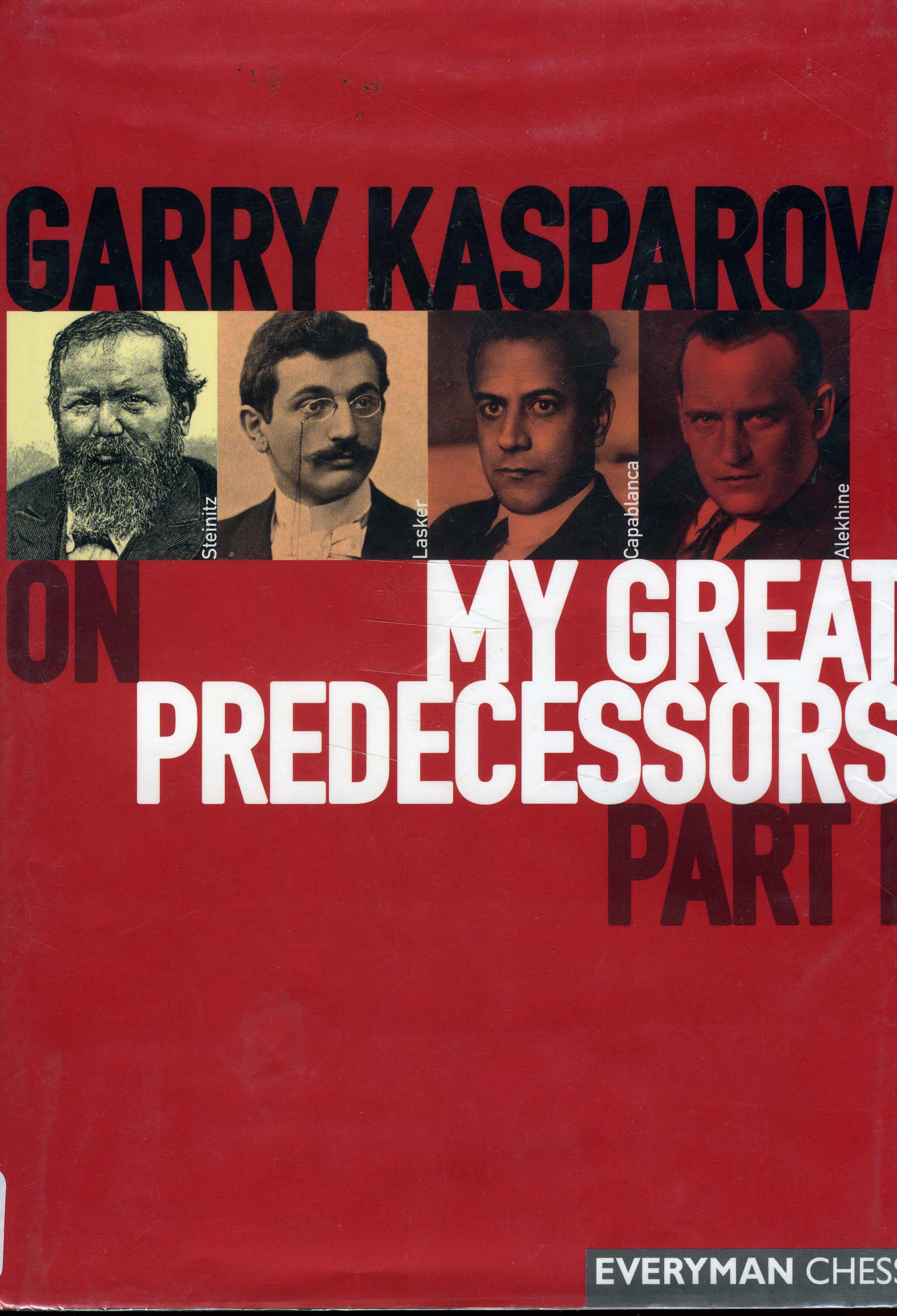Garry Kasparov on My Great Predecessors, Part 1 by Garry Kasparov

Author:Garry Kasparov [Kasparov, Garry]
Language: eng
Format: epub, pdf
Tags: Sports & Outdoors
ISBN: 9781857447439
Publisher: Everyman Chess
Published: 2011-10-05T03:00:00+00:00
Instead of a Match â Tours
After his triumph in San Sebastian, Capablanca made a lengthy journey through South America, and then he made an equally long and successful tour of Europe. In late 1911, with the guaranteed support of generous Cuban patrons, he took a decisive step â he sent Lasker an official challenge to a match for the world championship.
Within a few days Lasker replied that in principle he was ready to defend his title, and a further two weeks later he clarified on what conditions: the winner was to be the first to win six games, draws not counting, but with a limit of 30 games; after the 30th game the match was to terminate and the winner would be the player who had a lead of not less than two points, while with an advantage of one point the match would be considered drawn (and the champion would retain his title â a similar rule had already operated in the 1910 Lasker-Schlechter match); the time control was to be 12 moves in an hour, a playing session of not more than five hours a day, with a break after two and a half hours for dinner and rest; the challenger was to secure a prize fund of $10,000 (an unprecedented sum!).
The size of the prize fund suited Capablanca, but he angrily rejected the rest, declaring that Lasker was obliged to defend his title under the conditions as when he had defeated Steinitz (i.e. an unlimited match up to 10 wins), and calling the item about a two-point advantage âunfairâ. Lasker promptly demanded an apology, Capa refused, and negotiations concerning a match came to a standstill.
âMany took Capablancaâs side in the dispute, and in my opinion they were completely wrong,â Lasker wrote years later. âThe controversial rule stated that if the score was 1-0, 2-1 or 3-2 after 30 games, the match would be considered drawn. From this, some drew the conclusion that I was gaining a significant advantage, since a draw would leave me with the championâs title. However, the critics did not take account of the fact that the match would be played for a large sum of money, and the aforementioned rule would be valid as regards the division of this sum and was equally advantageous for both sides. And the retention of the title after a 0-1, 1-2 or 2-3 defeat did not have any value for me, unless I were to decisively regain it in a return match. After all, in itself the title of world champion does not give any significant advantages, if it is not acknowledged by the entire chess world, and a champion who does not have the chess world behind him is, in my view, a laughing-stock.â (Who could have imagined that this simple thought would be so topical in the transition between the 20th and 21st centuries!)
It is not for us to judge who was right and who was wrong in this episode. We would comment only that
Download
Garry Kasparov on My Great Predecessors, Part 1 by Garry Kasparov.pdf
This site does not store any files on its server. We only index and link to content provided by other sites. Please contact the content providers to delete copyright contents if any and email us, we'll remove relevant links or contents immediately.
| Coloring Books for Grown-Ups | Humor |
| Movies | Performing Arts |
| Pop Culture | Puzzles & Games |
| Radio | Sheet Music & Scores |
| Television | Trivia & Fun Facts |
The Infinite Retina by Robert Scoble Irena Cronin(6246)
Harry Potter and the Cursed Child: The Journey by Harry Potter Theatrical Productions(4503)
The Sports Rules Book by Human Kinetics(4379)
Molly's Game: From Hollywood's Elite to Wall Street's Billionaire Boys Club, My High-Stakes Adventure in the World of Underground Poker by Molly Bloom(3535)
A Knight of the Seven Kingdoms by George R R Martin(3334)
How To by Randall Munroe(3106)
Flowers For Algernon by Daniel Keyes(3101)
Quidditch Through the Ages by J.K. Rowling(3100)
Quidditch Through the Ages by J K Rowling & Kennilworthy Whisp(2969)
Stacked Decks by The Rotenberg Collection(2880)
Quidditch Through the Ages by Kennilworthy Whisp by J.K. Rowling(2860)
Quidditch through the Ages by J. K. Rowling(2792)
776 Stupidest Things Ever Said by Ross Petras(2776)
Quidditch Through The Ages by J. K. Rowling(2761)
Ready Player One: A Novel by Ernest Cline(2717)
What If?: Serious Scientific Answers to Absurd Hypothetical Questions by Randall Munroe(2700)
Beautiful Oblivion by Jamie McGuire(2603)
The Book of Questions: Revised and Updated by Gregory Stock Ph.d(2567)
Champions of Illusion by Susana Martinez-Conde & Stephen Macknik(2449)
